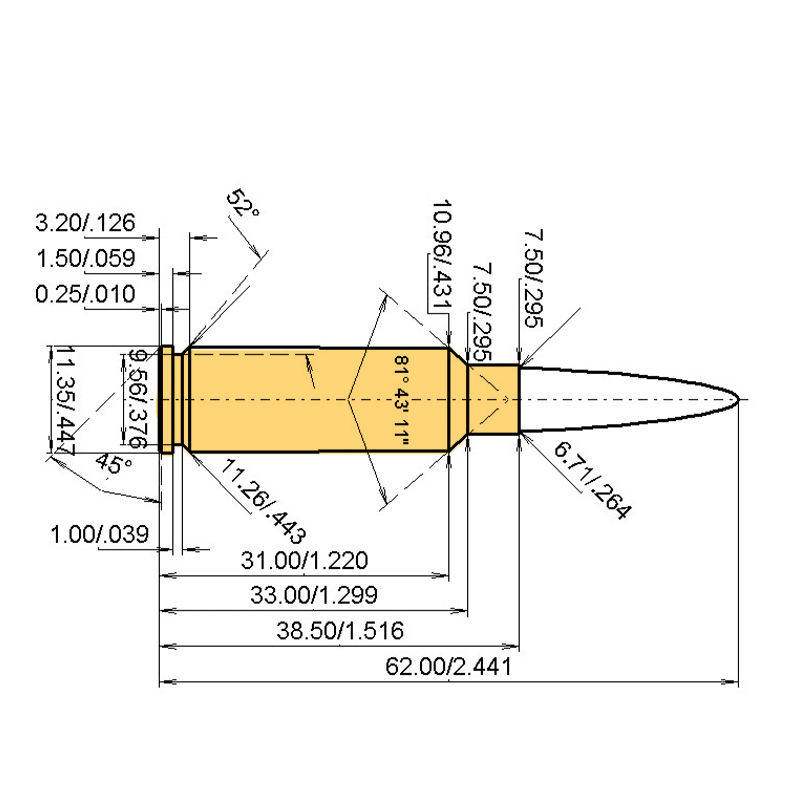Load data for caliber ".260 PICRA"
The .260 PPC (also known as the 6.5 PPC) is a short-action cartridge developed by P.O. Ackley in the 1950s. It is based on a necked-down .220 Russian case and uses a .264 caliber bullet, making it an ideal choice for those seeking accuracy and performance at medium range shooting distances.The .260 PICRA's excellent ballistic coefficient gives it flat trajectories and good retained energy levels, making it a good pick for hunters looking to take down small to medium sized game such as deer or coyotes without having to be up close and personal with the animal. Its low recoil also makes it suitable for novice shooters or youngsters learning how to shoot, while its high velocity ensures impressive knockdown power when needed.
You find .260 PICRA with all common powders and bullets by clicking the 'Loads in this caliber' button above.
Technical Specifications (based on the respective safety standard - see more details in tab 'Datasheet' if available)
| Caliber: | .260 PICRA |
|---|---|
| Cartridge Type: | Pistol/Revolver |
| Bullet Diameter: | 0.264 '' | 6.71 mm |
| Max. Case Length (l3): | 1.52'' | 38.48 mm |
| Max .Cartridge Length / OAL: | 2.44'' | 62 mm |
| Maximum Standardized Pressure: | 56565.6 psi | 3900 bar |

C.I.P.
The Commission internationale permanente pour l'épreuve des armes à feu portatives ("Permanent International Commission for the Proof of Small Arms" – commonly abbreviated as C.I.P.) is an international organisation which sets standards for safety testing of firearms. (The word portatives ("portable") in the name refers to the fact the C.I.P. tests small arms almost exclusively; it is ordinarily omitted from the English translation of the name.) As of 2015, its members are the national governments of 14 countries, of which 11 are European Union member states. The C.I.P. safeguards that all firearms and ammunition sold to civilian purchasers in member states are safe for the users.
To achieve this, all such firearms are first proof tested at C.I.P. accredited Proof Houses. The same applies for cartridges; at regular intervals, cartridges are tested against the C.I.P. pressure specifications at the ammunition manufacturing plants and at C.I.P. accredited Proof Houses.

